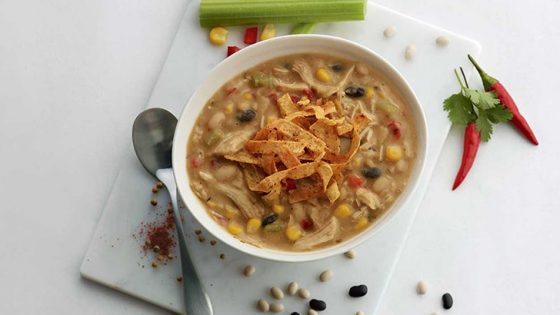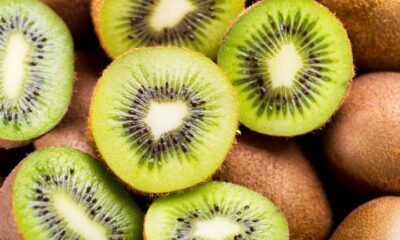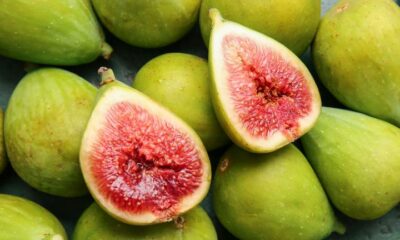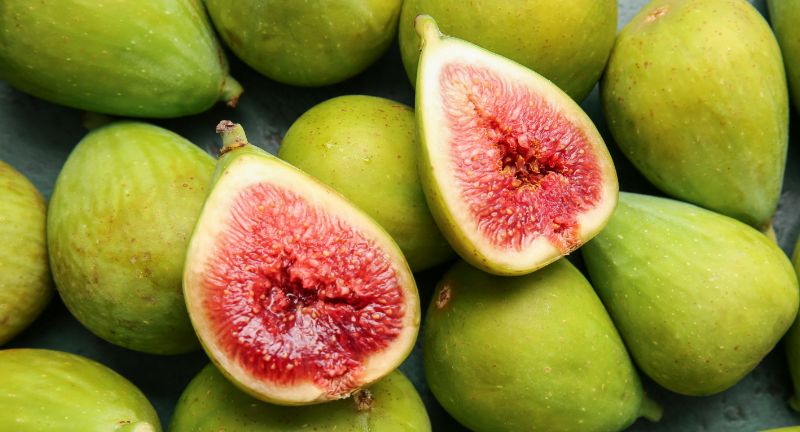
Shutterstock
Fruits are not just delicious; they’re also packed with essential vitamins, minerals, and antioxidants that contribute significantly to our health. Including a variety of fruits in your diet can lead to a multitude of health benefits, such as improved digestion, better heart health, and enhanced immune function. Each fruit carries its own set of nutrients and health-promoting compounds, making them invaluable as part of a balanced diet. From the heart-healthy fats of avocados to the powerful antioxidant properties of berries, there’s a fruit for every health need. Exploring these 27 fruits with the highest nutritional value will help you understand how each contributes uniquely to a healthy lifestyle.
Avocado

Shutterstock
Avocados are not only rich in monounsaturated fats which are good for heart health, but they also provide a significant amount of potassium and fiber. They contain a variety of essential nutrients, including vitamin E, B vitamins, and folic acid. Avocados are versatile in culinary uses, from guacamole to smoothies, enhancing dishes with their creamy texture. Including avocados in your diet can contribute to healthy aging and good digestive health.
Blueberries

Shutterstock
Blueberries are famed for their high antioxidant content, particularly anthocyanins, which may help fight inflammation and reduce the risk of chronic diseases. They are also a great source of dietary fiber, vitamin C, and manganese. Regular consumption of blueberries can support heart health and brain function. Their small size and sweet taste make them a popular choice for snacks, smoothies, or as a topping on cereals and yogurts.
Strawberries

Shutterstock
Strawberries are a rich source of vitamin C, an essential nutrient that boosts the immune system and skin health. They also provide fiber, antioxidants, and manganese, promoting overall health. The juicy and sweet flavor of strawberries makes them a delightful addition to desserts, salads, and breakfast dishes. Eating strawberries regularly can help manage blood sugar levels and support cardiovascular health.
Oranges

Shutterstock
Oranges are best known for their high vitamin C content which is vital for immune function and skin health. They also offer a good dose of fiber, potassium, and folate, contributing to overall heart health and digestive wellness. Oranges are widely used in culinary dishes, from fresh slices in salads to juice in beverages. Regular consumption of oranges can reduce the risk of chronic diseases and enhance iron absorption, promoting better health.
Bananas

Shutterstock
Bananas are a powerhouse of nutrients, providing a quick source of energy through their high content of carbohydrates and natural sugars. They are an excellent source of potassium, which helps in maintaining blood pressure and muscle function. Rich in vitamin B6, bananas aid in brain development and function. Their soft texture and sweetness make them a favorite for smoothies, baking, or as a nutritious snack on the go.
Apples
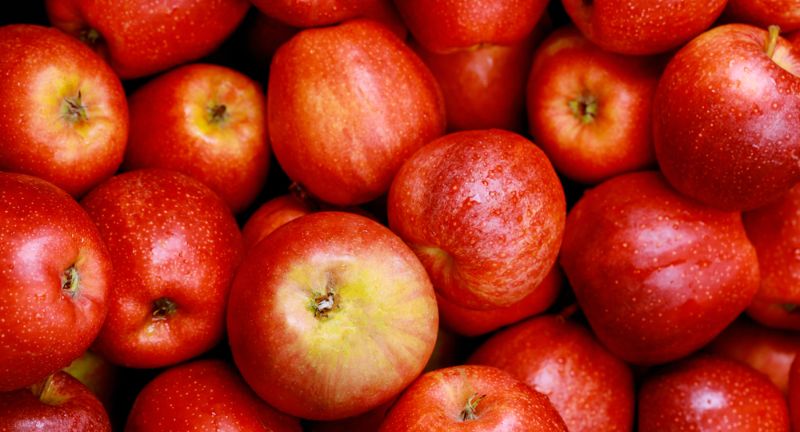
Shutterstock
Apples are highly beneficial for health, packed with fiber which aids in digestion and prevents constipation. They are also a good source of vitamin C and several antioxidants, including quercetin, which may protect against chronic diseases. Eating apples regularly can help in weight management and reduce the risk of heart disease, diabetes, and cancer. Their crisp and juicy texture makes them a versatile fruit for snacking, baking, or cooking.
Grapefruit

Shutterstock
Grapefruit is known for its potent vitamin C content, supporting immune function and skin health. This fruit is also rich in antioxidants and fiber, aiding in weight loss and cardiovascular health. Its tart and tangy flavor makes it a refreshing addition to breakfast or salads. Regular consumption of grapefruit can also help in lowering cholesterol levels and improving metabolic rates.
Kiwi
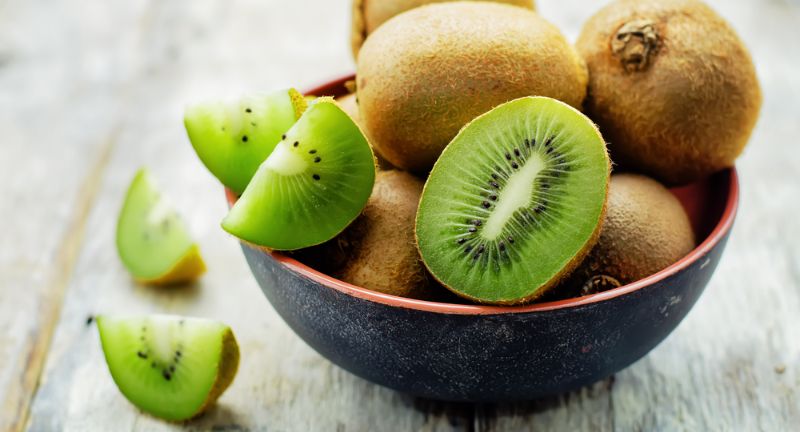
Shutterstock
Kiwi is an excellent source of vitamin C, even outmatching oranges in its content, which boosts the immune system and aids in collagen synthesis. It’s also rich in vitamin K and potassium, contributing to bone health and the reduction of blood pressure. Kiwi contains a significant amount of fiber, promoting gut health and regular digestion. Its unique sweet and tart flavor enhances the taste of fruit salads, desserts, and smoothies.
Pomegranates
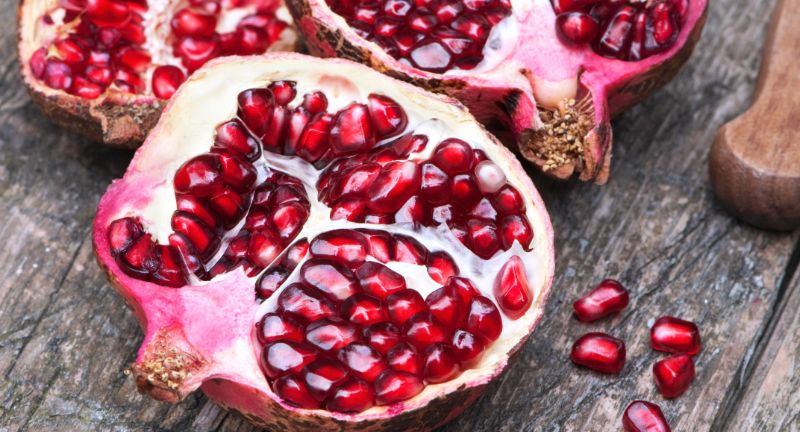
Shutterstock
Pomegranates are celebrated for their high levels of antioxidants, which help in reducing inflammation and protecting cells from damage. They are a good source of vitamin C, potassium, and fiber, enhancing heart health and digestion. The seeds of pomegranates can be used in various dishes, adding a pop of flavor and texture to salads, desserts, and drinks. Regular intake of pomegranates has been linked to improved athletic performance and slower aging processes.
Mango
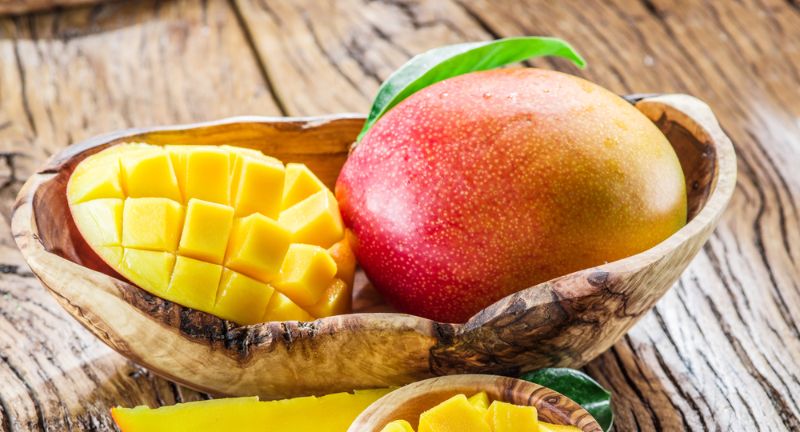
Shutterstock
Mangoes are highly nutritious, offering high amounts of vitamin A, which supports eye health and immune function. They also provide a substantial dose of vitamin C and dietary fiber, promoting skin health and digestive wellness. The sweet and juicy nature of mangoes makes them a favorite for juices, desserts, and exotic dishes. Incorporating mangoes into your diet can help in preventing heat stroke and lowering cholesterol levels.
Cherries
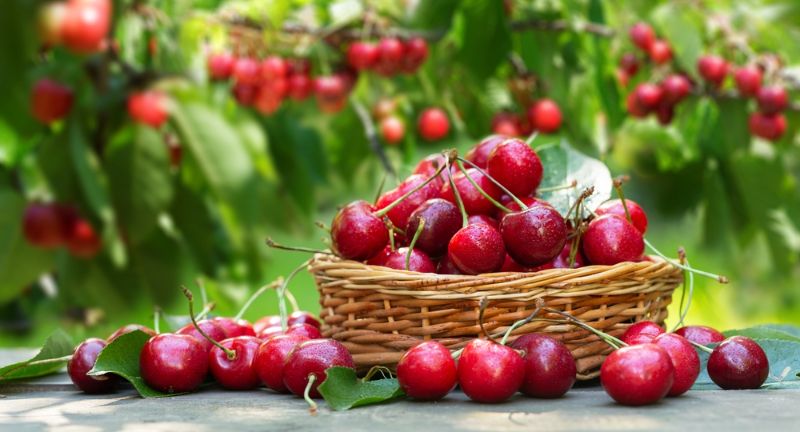
Shutterstock
Cherries are packed with antioxidants, particularly anthocyanins and quercetin, which help reduce inflammation and combat chronic diseases. They also provide vitamin C, potassium, and fiber, supporting heart health and digestion. Cherries have a distinct sweet and tart flavor, making them perfect for baking, in beverages, or as a snack. Regular consumption of cherries has been linked to improved sleep quality due to their natural melatonin content.
Papaya
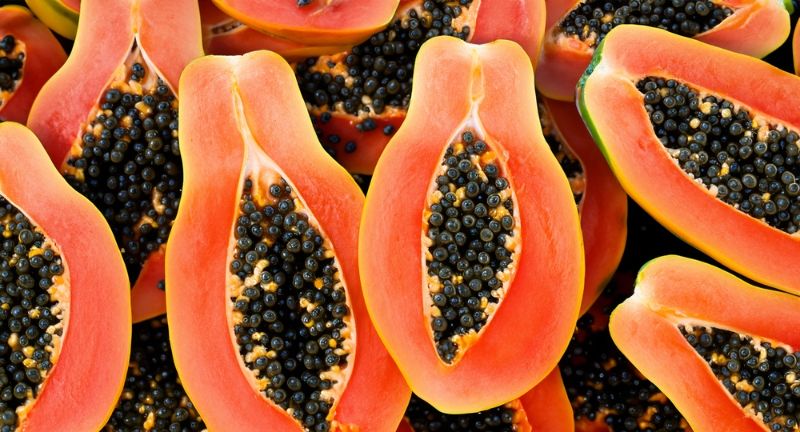
Shutterstock[/caption]
Shutterstock
Papaya is a tropical fruit rich in vitamin C, vitamin A, and an enzyme called papain, which aids in digestion and can help reduce inflammation. It is also a good source of fiber and antioxidants, supporting cardiovascular health and immune function. Papaya’s sweet and soft flesh makes it ideal for tropical smoothies, fruit salads, or as a tenderizer for meats. Eating papaya regularly can improve skin clarity and reduce the risk of age-related macular degeneration.
Guava
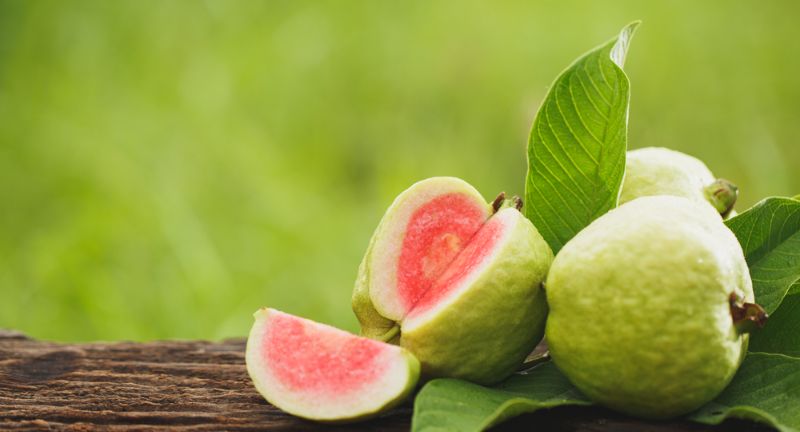
Shutterstock
Guava is exceptionally high in vitamin C, offering more than four times the daily recommended intake, which is essential for immune health. It also provides a good amount of dietary fiber, aiding in digestion and weight management. Guava is rich in antioxidants, protecting the body against free radical damage. The fruit’s unique flavor and rich nutrient profile make it suitable for jams, juices, and as a fresh snack.
Watermelon
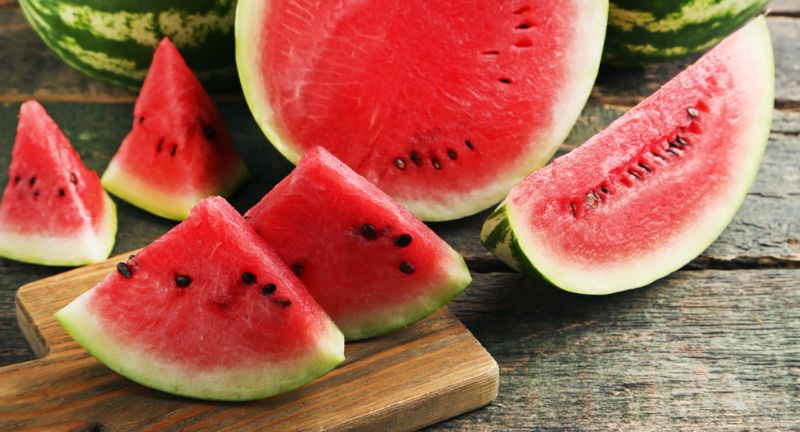
Shutterstock
Watermelon is a hydrating fruit, consisting of about 92% water, making it excellent for hydration and detoxification. It’s a good source of vitamin A, vitamin C, and antioxidants like lycopene, which supports cardiovascular health. Watermelon’s sweet and refreshing taste makes it perfect for summer salads, drinks, and desserts. Regular consumption of watermelon can help in preventing muscle soreness, and its low calorie content makes it a healthy choice for weight management.
Blackberries
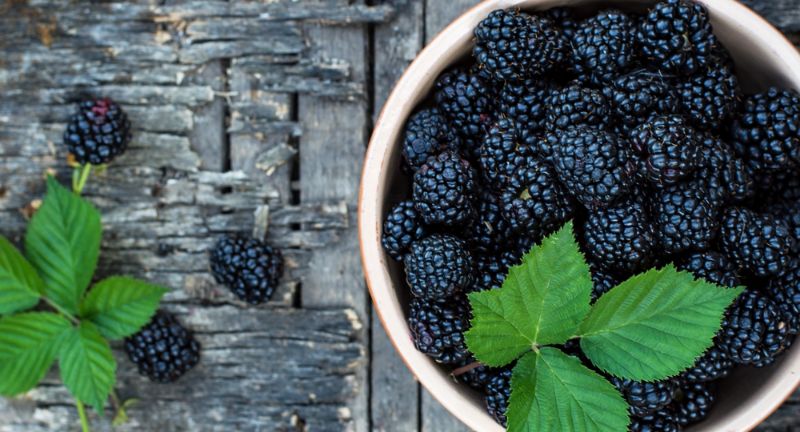
Shutterstock
Blackberries are nutrient-dense, offering a wealth of antioxidants that protect the body against inflammation and oxidative stress. They are high in vitamin C, vitamin K, and dietary fiber, promoting bone health and digestive regularity. Blackberries can be enjoyed fresh, in jams, or in desserts, adding a burst of flavor and nutrients. Their deep color and tart flavor provide not only aesthetic appeal but also health benefits, making them a great addition to a balanced diet.
Raspberries

Shutterstock
Raspberries are rich in essential nutrients and bioactive compounds, including high levels of dietary fiber, vitamin C, and manganese. They are known for their anti-inflammatory properties and potential to reduce the risk of chronic diseases such as obesity, cardiovascular disease, and type 2 diabetes. Raspberries have a distinctly tart and sweet flavor, making them popular in desserts, smoothies, and as a fresh snack. Their robust nutritional profile supports overall health, particularly in promoting digestive health and disease prevention.
Pineapple
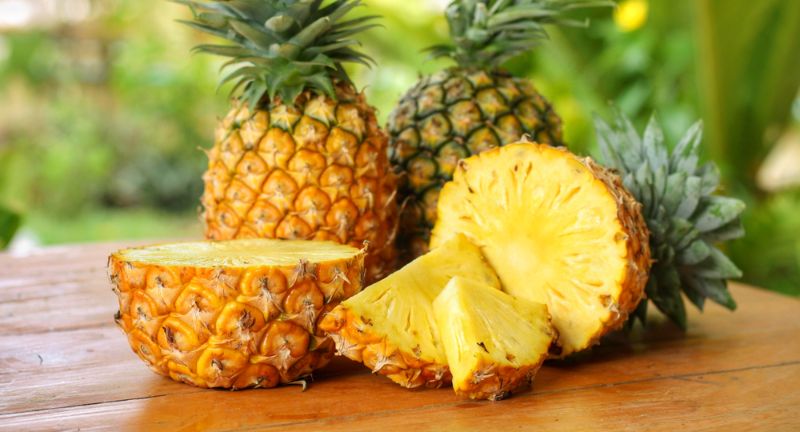
Shutterstock
Pineapple is a tropical fruit known for its sweet and tangy flavor, which makes it a popular choice for beverages and tropical dishes. It’s a rich source of vitamin C, manganese, and contains bromelain, an enzyme that aids in digestion and can help reduce inflammation. Pineapple’s nutrients promote immune health and boost metabolism. Including pineapple in your diet can also benefit tissue and bone health due to its high manganese content.
Cranberries

Shutterstock
Cranberries are especially valued for their ability to prevent urinary tract infections due to their proanthocyanidins content. These small red berries are also a great source of vitamin C, fiber, and antioxidants. Cranberries can be consumed as juice, dried, or fresh, and are often used in holiday dishes and sauces. Their tart flavor not only adds a unique taste to recipes but also offers cardiovascular and digestive health benefits.
Dragon Fruit (Pitaya)
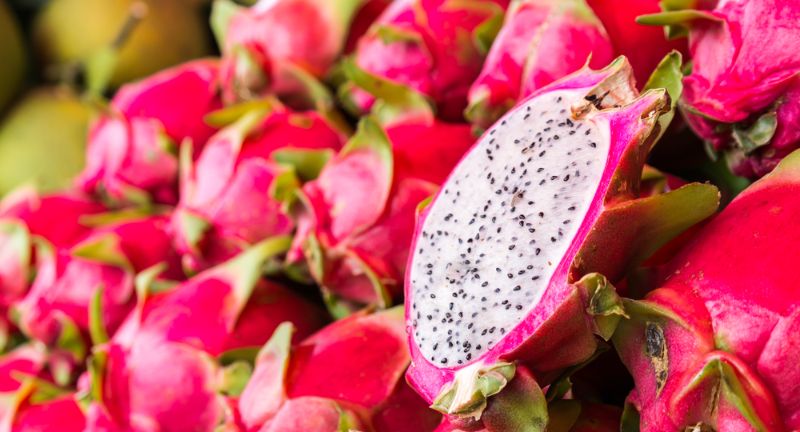
Shutterstock
Dragon fruit, also known as pitaya, is notable for its vibrant color and unique look, offering a host of health benefits. This fruit is a good source of vitamin C, iron, and magnesium, which are essential for a healthy immune system and energy levels. Dragon fruit has a mildly sweet taste and can be eaten fresh or used in smoothies and desserts. Its high antioxidant levels help protect against free radicals and can enhance skin health.
Dates

Shutterstock
Dates are a dense source of energy, primarily from natural sugars which provide a rapid source of energy. They are rich in fiber, helping to maintain digestive health and regularity. Dates also contain important minerals such as potassium and magnesium, which are crucial for heart and bone health. Their sweet flavor makes them a natural sweetener in various dishes and a healthy substitute for white sugar in recipes.
Cantaloupe
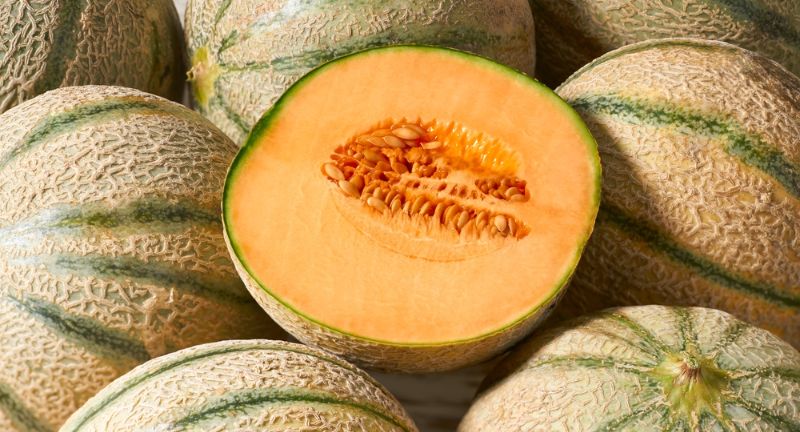
Shutterstock
Cantaloupe is a hydrating fruit that offers a high amount of vitamin A and vitamin C, which are essential for skin and eye health. This melon is also rich in water and electrolytes, making it ideal for hydration and replenishing lost fluids. Cantaloupe’s sweet and mild flavor makes it a perfect addition to breakfasts or desserts. Regular consumption can boost your immune system and help prevent dehydration, especially during hot weather.
Grapes
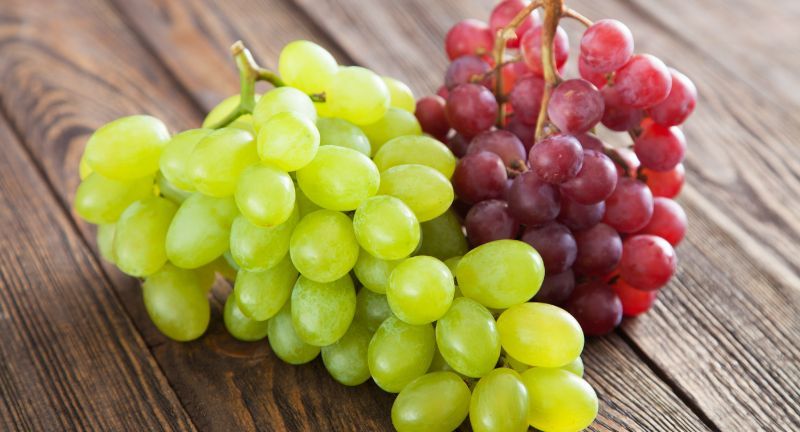
Shutterstock
Grapes are a delicious source of antioxidants, notably resveratrol, which has been linked to heart health and longevity. They also contain vitamins C and K, which are essential for immune function and bone health. Grapes can be eaten fresh, or used in cooking, such as in sauces, or dried as raisins. Their versatility and health benefits make them a great choice for a balanced diet.
Plums
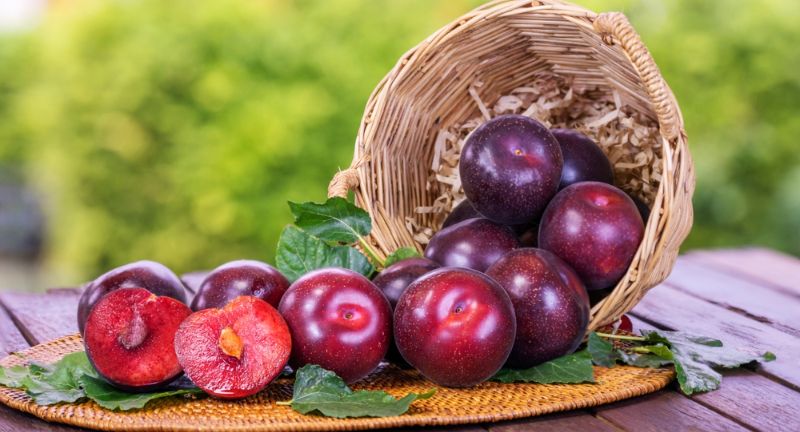
Shutterstock
Plums are rich in antioxidants that help reduce the risk of several chronic diseases by fighting oxidative stress in the body. They also provide a good amount of vitamin C, which is important for immune health and skin elasticity. Plums can be enjoyed fresh, dried as prunes, or cooked in various culinary dishes. Their natural sweetness and juiciness make them a satisfying snack and a healthful addition to diets.
Lychee
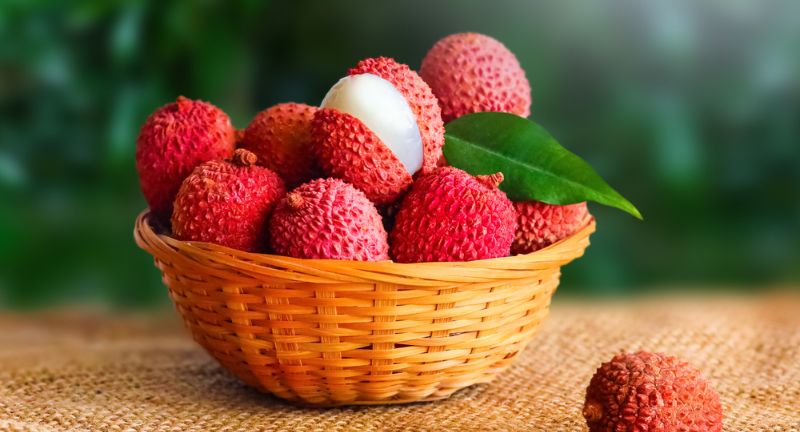
Shutterstock
Lychee contains a high amount of vitamin C, which is essential for immune system support and skin health. This tropical fruit is also rich in copper and potassium, aiding heart health and muscle function. Lychee’s distinctive sweet and floral flavor makes it popular in desserts, cocktails, and as a fresh snack. Regular consumption of lychee can aid in digestion and boost overall health.
Figs

Shutterstock
Figs are a nutritious fruit that provides a wealth of benefits; they are high in fiber, which aids in digestion and may help manage blood sugar levels. They are also a good source of minerals like calcium and potassium, which support bone health and blood pressure regulation. Figs have a unique, sweet taste, making them a great addition to salads, baked goods, and as a cheese accompaniment. Their dense nutritional profile makes them an excellent choice for a healthful diet.
Starfruit (Carambola)

Shutterstock
Starfruit, also known as carambola, is a low-calorie fruit high in vitamin C, fiber, and antioxidants. Its unique star shape makes it a visually appealing addition to dishes, while its crisp, tart flavor complements both sweet and savory recipes. Starfruit is beneficial for digestive health and can boost the immune system. Its high fiber content also helps in weight management and lowering cholesterol levels.
Passion Fruit
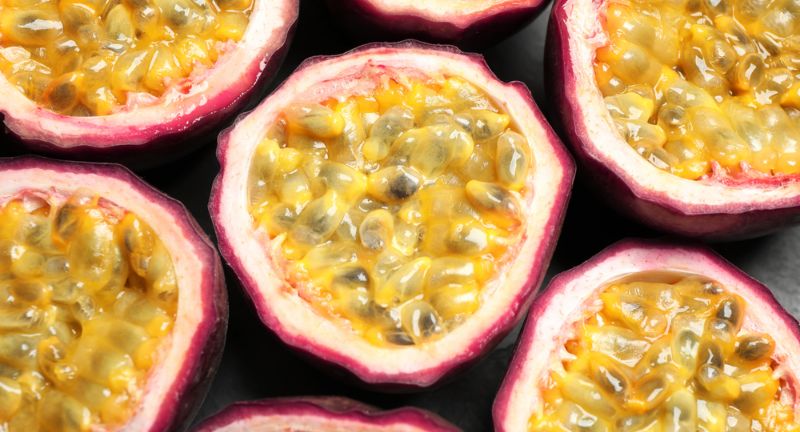
Shutterstock
Passion fruit is rich in vitamins, especially vitamin C, and is a great source of dietary fiber, aiding digestion and heart health. Its intense, exotic flavor makes it a popular ingredient in juices, desserts, and salads. Passion fruit is also packed with antioxidants, which help reduce stress and inflammation. Regular consumption can enhance immune function and contribute to a healthy diet.
Conclusion

Shutterstock
As we have seen, the diversity of fruits available offers a broad spectrum of nutrients that can enhance our health in many ways. By integrating a variety of these fruits into your diet, you can tap into a rich source of vitamins, minerals, and antioxidants that help maintain and improve overall well-being. Each fruit not only brings its unique flavor to the table but also specific health benefits that can address different dietary needs and preferences. Whether aiming for better digestive health, seeking antioxidants for skin health, or needing natural energy boosts, fruits provide a natural, tasty solution. Embrace the colors, tastes, and textures of these nutritious fruits to make your meals more enjoyable and healthful.












 Shutterstock[/caption]
Shutterstock[/caption]


















